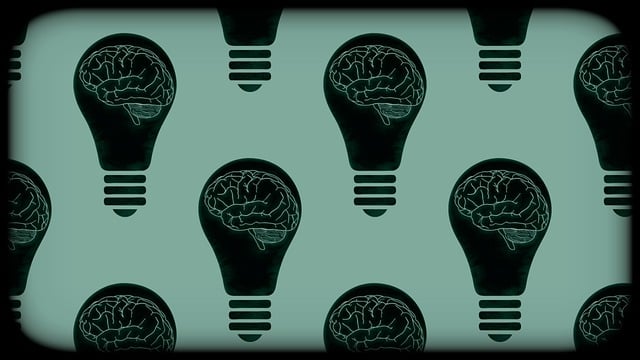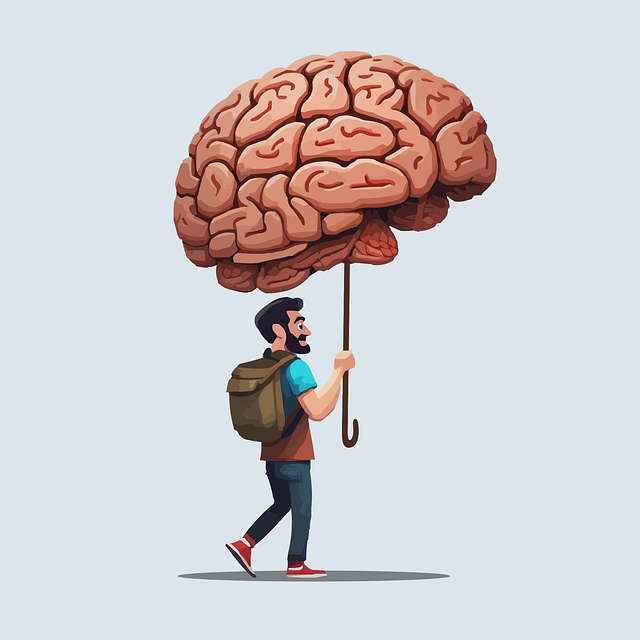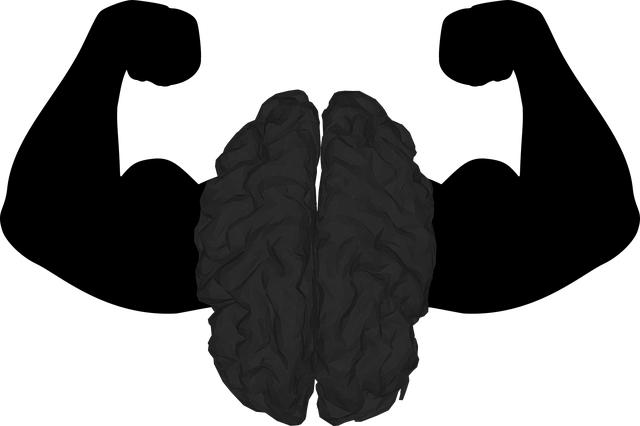Craft Your Mental Wellness: Personalized Self-Care for Better ADD-ADHD Therapy
Mental wellness involves emotional regulation, psychological balance, and overall well-being, achiev…….
In the realm of healthcare and psychology, attention-deficit/hyperactivity disorder (ADHD) has long been a subject of study and concern. As a neurodevelopmental condition affecting millions globally, ADHD presents unique challenges in areas such as focus, impulse control, and hyperactivity. Over the years, various therapeutic approaches have emerged to manage and treat this complex disorder. Among these, Superior ADD-ADHD Therapy stands out as an innovative and comprehensive strategy that promises transformative outcomes. This article aims to delve into the depths of this therapy, exploring its mechanisms, global impact, economic implications, technological integrations, regulatory frameworks, and its potential to shape the future of ADHD management. By the end, readers will gain a comprehensive understanding of why Superior ADD-ADHD Therapy is not just a treatment but a game-changer in the field.
Definition and Composition:
Superior ADD-ADHD Therapy, or enhanced ADHD treatment, represents an advanced approach that goes beyond conventional methods. It involves a multi-faceted strategy combining behavioral interventions, cognitive training, medication management, and personalized support to address the multifaceted nature of ADHD. The therapy is tailored to each individual’s unique needs, acknowledging that ADHD presents differently in various individuals.
Historical Context:
The evolution of ADHD treatment has been a journey from largely medicinal approaches to a more holistic understanding. Early treatments primarily relied on stimulants to suppress symptoms. However, research over the past decade has led to a more nuanced approach, recognizing the importance of non-pharmacological interventions. Superior ADD-ADHD Therapy builds upon these advancements, incorporating cutting-edge techniques and technologies to offer a superior level of care.
Significance:
This therapy’s significance lies in its potential to significantly improve an individual’s quality of life. By targeting core symptoms and associated challenges, it enables individuals with ADHD to better focus, manage impulsivity, and reduce hyperactivity. Consequently, this can lead to improved academic performance, enhanced social interactions, and increased workplace productivity. Moreover, Superior ADD-ADHD Therapy promotes self-esteem and a sense of control, empowering individuals to embrace their unique cognitive strengths.
The impact of Superior ADD-ADHD Therapy extends far beyond borders, shaping healthcare systems worldwide. Key trends and influences across different regions include:
| Region | Trends/Influences | Example |
|---|---|---|
| North America | Early adoption of technological interventions; emphasis on personalized medicine | The United States has seen a rise in digital therapy platforms offering ADHD coaching, with apps tracking symptoms and behavior. |
| Europe | Comprehensive healthcare systems; focus on evidence-based practices | Countries like Germany and the UK have established robust guidelines for ADHD treatment, integrating Superior ADD-ADHD Therapy into their national health policies. |
| Asia Pacific | Increasing awareness and acceptance; cultural adaptations in therapy approaches | China has witnessed a growing demand for ADHD treatment, leading to the development of culturally sensitive therapy models tailored to Asian individuals. |
| Middle East & Africa | Focus on access to quality care; community-based interventions | In some Gulf countries, community centers offer group therapy sessions, making Superior ADD-ADHD Therapy more accessible to diverse populations. |
These global trends demonstrate the universal need for effective ADHD management and the adaptability of Superior ADD-ADHD Therapy across cultures.
The economic implications of Superior ADD-ADHD Therapy are significant, touching various sectors and influencing healthcare systems worldwide.
Market Dynamics:
The global ADHD treatment market is experiencing growth due to increasing awareness and the demand for effective therapies. According to a 2022 report by Market Research Future (MRFR), this market is projected to reach USD 16.5 billion by 2027, at a CAGR of 9.2%. Superior ADD-ADHD Therapy, with its advanced nature, contributes to this growth by offering improved outcomes and reduced long-term costs associated with untreated ADHD.
Investment Patterns:
Private equity firms and venture capitalists have shown interest in innovative ADHD therapy startups, recognizing the potential for high impact and return on investment. This funding has driven the development of digital platforms, mobile apps, and advanced neurotechnologies tailored to Superior ADD-ADHD Therapy.
Economic Impact:
Effective treatment can lead to significant economic benefits at both individual and societal levels:
Technology plays a pivotal role in shaping Superior ADD-ADHD Therapy, enhancing its accessibility, personalization, and effectiveness.
Digital Therapy Platforms:
Online therapy platforms offer convenient access to specialized ADHD coaching, providing structured programs and real-time feedback. These platforms use AI algorithms to customize treatment plans based on individual progress. For instance, MindAdapt uses machine learning to adapt exercises for cognitive training, ensuring a personalized experience.
Neurofeedback and Brain Training:
Neurofeedback technology allows individuals to learn self-regulation of brain activity associated with ADHD symptoms. This non-invasive method trains the brain to improve focus and impulse control. Startups like NeuraSine are at the forefront of developing neurofeedback devices for home use, making this advanced therapy more accessible.
Virtual Reality (VR) Therapy:
VR offers immersive experiences that can help individuals with ADHD practice coping strategies in simulated environments. This technology is particularly useful for social skills training and exposure therapy. For example, VR-ADHD programs create virtual scenarios to help patients navigate challenging situations, fostering better social interactions.
Artificial Intelligence (AI) and Machine Learning:
AI-driven tools analyze vast datasets to identify patterns and predict treatment outcomes. These technologies can assist in personalized medicine approaches, medication management, and even develop tailored cognitive training programs. Companies like ADHD AI Labs are using machine learning algorithms to revolutionize ADHD assessment and treatment planning.
The development and implementation of Superior ADD-ADHD Therapy are guided by a complex web of policies and regulations, ensuring patient safety and ethical practices.
International Guidelines:
Organizations like the World Health Organization (WHO) provide global guidelines for ADHD management, emphasizing evidence-based practices. These guidelines offer a framework for healthcare professionals worldwide to adopt Superior ADD-ADHD Therapy while ensuring quality care.
Regional Regulations:
Different regions have varying regulatory bodies overseeing ADHD treatment:
Legislative Frameworks:
Several countries have enacted laws to protect individuals with ADHD, ensuring equal access to quality care:
Despite its promise, Superior ADD-ADHD Therapy faces challenges and criticisms that require careful consideration and strategic solutions.
Main Challenges:
Proposed Solutions:
Case Study 1: Emily’s Journey (Aged 8)
Emily, an avid reader with a vivid imagination, struggled in school due to her ADHD symptoms. Her parents sought help, and she was diagnosed with ADHD. Through Superior ADD-ADHD Therapy, Emily received cognitive training tailored to her interests, specifically reading and storytelling. She also benefited from medication management, enabling her to focus during class. As a result, her grades improved, and she developed strategies to manage her hyperactivity, leading to a more enjoyable learning experience.
Case Study 2: Sam’s Success (Aged 25)
Sam, a young professional, was diagnosed with ADHD later in life after struggling with time management and organization. He participated in a digital therapy program offering structured coaching and mindfulness exercises. The program helped him develop routines and improve his focus, leading to better performance at work. Additionally, he learned coping strategies to manage impulsivity, resulting in more fulfilling social interactions.
Case Study 3: Community-Based Approach (Adolescents in Brazil)
In a low-income community in Brazil, adolescents with ADHD faced significant challenges due to limited access to healthcare. Local non-profit organizations stepped in, implementing group therapy sessions and peer support programs. This community-based approach not only provided essential ADHD management but also fostered social connections and self-esteem among the youth. The success of this initiative highlights the power of local solutions in addressing global challenges.
The future of Superior ADD-ADHD Therapy is filled with promising possibilities, driven by technological advancements, evolving research, and a growing global community.
Potential Growth Areas:
Emerging Trends:
Strategic Considerations:
Superior ADD-ADHD Therapy represents a significant advancement in the field of ADHD management, offering hope and improved quality of life for individuals affected by this complex disorder. Through comprehensive treatment plans, technological innovations, and global collaborations, this therapy has the potential to transform lives. As research continues to evolve and technologies mature, we can expect even more effective and accessible solutions.
By addressing economic, social, and cultural aspects, this therapy addresses a holistic view of ADHD, ensuring that individuals receive the support they need to thrive in various aspects of their lives. The future of ADHD care is bright, thanks to the dedication of professionals, researchers, and advocates who are tirelessly working towards unlocking the full potential of Superior ADD-ADHD Therapy.
Q1: Is Superior ADD-ADHD Therapy suitable for all individuals with ADHD?
A: While it is a comprehensive approach, not every individual will respond to this therapy in the same way. The effectiveness of treatment depends on various factors, including age, severity of symptoms, and underlying causes. A personalized assessment by qualified professionals is essential to determine the best course of action.
Q2: How does technology enhance Superior ADD-ADHD Therapy?
A: Technology plays a crucial role by offering convenient, accessible, and personalized therapy options. Digital platforms provide structured programs, real-time feedback, and adaptive learning experiences. Neurofeedback and VR technologies enable immersive training, while AI assists in diagnosis, treatment planning, and outcome prediction.
Q3: Are there any risks associated with Superior ADD-ADHD Therapy?
A: As with any medical intervention, there are potential risks and side effects, especially with medication management. However, these risks can be minimized through careful monitoring and personalized approaches. It’s essential to discuss concerns with healthcare providers who can offer tailored guidance based on individual needs.
Q4: How accessible is Superior ADD-ADHD Therapy in low-income regions?
A: Accessibility challenges exist globally, particularly in underserved regions. However, community-based initiatives, partnerships between NGOs and healthcare providers, and the integration of digital therapies can improve access. Governments and international organizations play a vital role in ensuring that quality ADHD treatment is available to all, regardless of socioeconomic status.

Mental wellness involves emotional regulation, psychological balance, and overall well-being, achiev…….

Cultural competency in healthcare is vital for improving patient outcomes, especially for conditions…….

Breaking down ADHD stigma through understanding and early intervention is crucial. Superior ADD-ADHD…….

The text emphasizes the importance of emotional well-being for individuals with ADD-ADHD, highlighti…….

Understanding mood regulation is key for mental wellness, especially for individuals with ADD/ADHD……..

Anxiety disorders, affecting millions globally, include conditions like generalized anxiety, phobias…….

Cultural diversity significantly influences mental health and well-being, with each culture having u…….

Superior ADD-ADHD Therapy emphasizes coping skill development as a key component for managing stress…….

Substance abuse poses significant risks, impacting both individuals and communities. Understanding t…….

Superior ADD-ADHD Therapy is an evidence-based, holistic approach that goes beyond symptom managemen…….